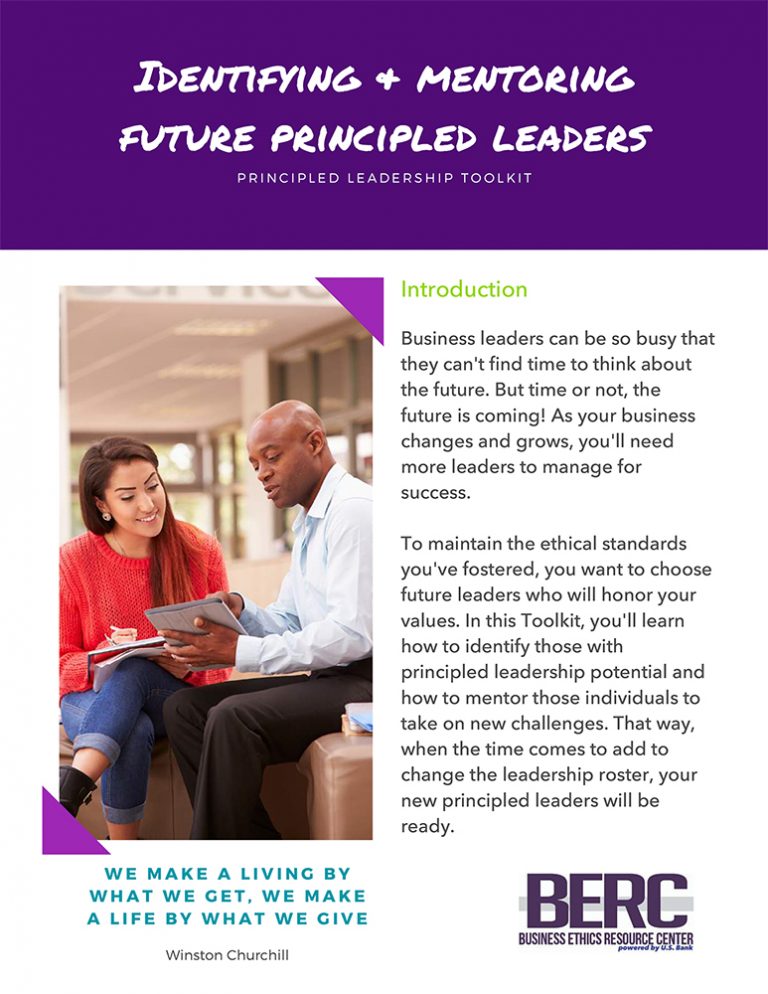The wrong vendor or business partner can harm your business and reputation. Here’s how to find the right ones.
To paraphrase John Donne, no business is an island. Every enterprise, from a self-employed consultant who works from home to a company with a few hundred employees, requires the services of other third-party businesses in order to meet their customers’ needs.

Particularly for small businesses focused on operating in an ethical way, these third-party partnerships provide a certain amount of risk. After all, you exert a considerable amount of control over your own employees’ actions and the way you do business. Your business partners, on the other hand, can never be fully accounted for. That said, there are a variety of ways to vet third parties for their integrity and to ensure you are partnered with companies that share your same values.
Do your research
In the age of the internet, a quick online search may be your first resource for uncovering reputational or ethical concerns about potential business partners. Media reports of serious malfeasance should raise an obvious red flag, of course, as should any evidence that the company or any of its employees have been involved in serious criminal activity.
However, it may be worth doing a deeper dive. Contacting the Better Business Bureau and reading online reviews on websites such as Yelp! can uncover additional information. A pattern of legal-but-dodgy practices towards customers might not rise to the level of legal or media attention, but might be evident based on online reviews of the company’s services, if they are available. Such online reviews should, of course, be taken with a grain of salt—having two negative reviews doesn’t mean that much, but having twenty might.
Asking for customer references is another important due diligence step. When speaking to references, you can ask very directly about the business partner’s policies, procedures and track record as they relate to your business.
Asking questions up front
If a potential partner passes the first review and you begin formally discussing a relationship with them, be upfront with questions about ethics and compliance. The potential partner should be willing to share information about beneficial ownership, their own ethics and compliance programs, customer privacy, and more; and any resistance on their part should raise flags and be explored further. Some findings, such as the potential partner is politically connected or has a history of minor legal problems, may not be disqualifying, but should be cause for extra scrutiny and preemptive contract language.

Should you decide to ink a deal, ensure that the contract contains provisions that obligate both parties to inform each other of any major ethical concerns or legal trouble as soon as possible. For example, you might have language in your contract that obligates a partner to inform you within 10 days of any legal action that is filed in a court of law against their company. The last thing that you want is to find out that a partner has been under investigation for months after something embarrassing goes public—remember that any damage to your new partner’s reputation could always reflect on you.
Assign someone to own the relationship
Once you have an ongoing relationship with a third party, some oversight is still advisable to keep everything above board. One best practice to keep tabs on your third parties is to have one person “own” each relationship with a third party. Even if your company is large enough to have a compliance department, compliance teams typically have to evaluate dozens of separate relationships. Even with robust screening, problems can slip through the cracks. For that reason, it’s a good idea to have an additional person tasked with managing the relationship (usually the person who brought on the third party) and reporting on any changes that pertain to ethics concerns. For example, if a vendor begins offering significant gifts or entertainment opportunities to a buyer on your team, that activity should be flagged and addressed.
Third parties allow small businesses to focus on core services while still reaching a large client base, and an ethical businessperson shouldn’t be hesitant to enter into third party relationships. Armed with these best practices, you can work confidently with partners in your community.
This article originally appeared on U.S. Bank’s Financial IQ site. Used by kind permission of U.S. Bank.


